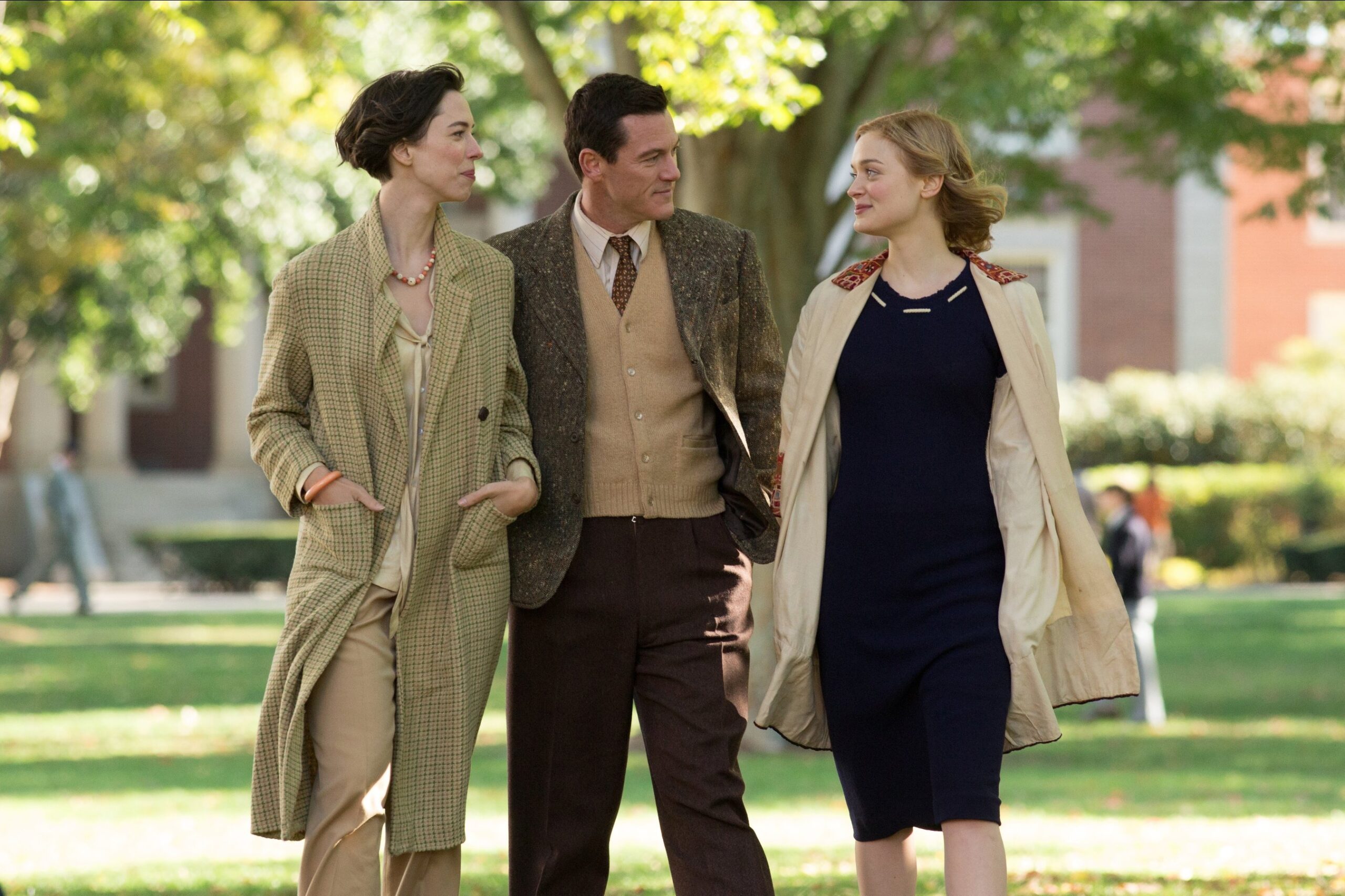As we settle into our seats, Trini anxiously checks her phone; her second boyfriend is driving an hour in from Langley, BC to watch the film with her in downtown Vancouver, and he might be late.
As I pull out my notebook, she asks me not to use her last name because, she explains, she lives a double life. In one, she’s a Mormon single mother from Langley. In the other, she’s a polyamorous woman with a primary boyfriend in Seattle, another in Langley, an ex-boyfriend she meets up with for kisses and cuddles, and a transgender child.
But tonight, Trini’s polyamorous half is being catered to. We’re about to watch Professor Marston and the Wonder Women, a biopic about the polyamorous creators of the Wonder Woman comics, written and directed by Angela Robinson, the lesbian director of D.E.B.S, and a writer and producer behind The L Word and True Blood.
The film won’t be released to the general public until Oct 13, 2017, but Sony Pictures has arranged this special screening a week early for the Vancouver polyamorous community, with free tickets for all 50 polyamorous people who showed up.
(Sony first offered all the tickets in pairs, but quickly shifted to single tickets when the polyamorists politely pointed out that they would obviously not all be showing up in couples.)
Polyamorists, people who have open, consensual romantic relationships with multiple people, aren’t accustomed to special attention from big companies, Trini tells me. Along with many other poly people I speak to tonight, she’s thrilled that Sony went out of its way to target the polyamorous market.
She shuffles out to collect her boyfriend and popcorn just as an authoritative grey-haired woman wearing a Vancouver Polyamory button takes the stage.
“We are going to see if this movie plays into the stereotypes that we are all so used to, or if it expands on poly as a new form of relationship,” she announces, as a Sony rep stands awkwardly beside her. The audience, most in their 40s or 50s, with a narrow row of young people at the front, chuckle and clap politely.
The lights dim. A title card flashes on the screen informing us that the film is based on a true story.
It is. Professor William Marston, his wife Elizabeth Holloway Marston and their lover Olive Byrne were real people. Marston really was the inventor of an early prototype of the lie detector, lived in an unconventional relationship with two women, and played out his feminist and sexual politics in the pages of his Wonder Woman comics until his death from cancer in 1947. All of this is accurately portrayed in the film, right up to the end card explaining that Holloway and Byrne lived together for another 40 years after Marston’s death.
The rest of the film is pure pornography. Not that it’s sexually explicit; there’s a little bit of spanking, light bondage, and a nipple thrown in here and there. Professor Marston and the Wonder Women is emotional porn for poly people. It’s a big, wet, effusive kiss to the ideals of contemporary polyamory, full of stand-up-and-applaud lines like, “I don’t experience sexual jealousy. Who am I to fight nature? I’m your wife, not your jailer.” As she delivers this line, Holloway (played by Rebecca Hall) might as well have turned to the audience and given a big wink.
And like the early Wonder Woman comics, the film is glorious, entertaining, thrilling pornography. During one set-piece threesome sex scene in the costume room of a college theatre, I swear I could hear our audience holding their collective breath.
Inevitably, the glorification of Marston and his unconventional family comes at the expense of the truth.
I won’t go into the many ugly, inconvenient parts of Marston’s life that would have ruined the glowing tribute had they been included — from Marston’s racism or questionable feminist principles to the third woman whom the film omits entirely. You’re better off reading Katha Pollitt and Noah Berlatsky’s treatment at The Atlantic, or diving into Jill Lepore’s The Secret History of Wonder Woman.
Professor Marston and the Wonder Women is a lie, but golly is it a beautiful one.
As the credits roll, I turn to Terrence Anderson, a 28-year-old polyamorous man with ginger hair and thick-rimmed glasses.
“I was expecting it to be terrible, and I liked it a lot. I have some gripes, but if you put it in context for the time, it was solid,” he tells me. “It landed really well.”
Anderson says he knows that a lot of the film was fictional, but that it feels good to see a film that validates his polyamorous experience.
“The best thing I’ve seen before this was Vicky Cristina Barcelona, and that movie was terrible,” he laughs.
Editor’s note, Oct 6, 2017: An earlier version of this story misspelled director Angela Robinson’s name.


 Why you can trust Xtra
Why you can trust Xtra


